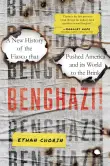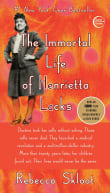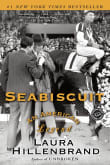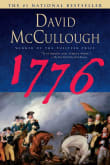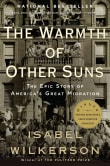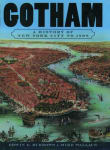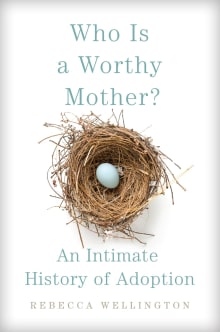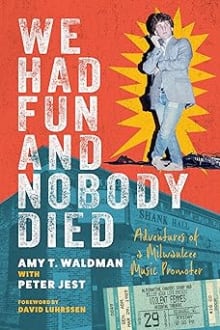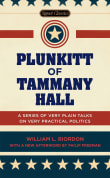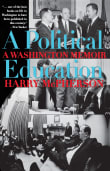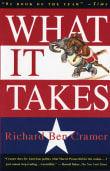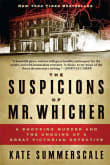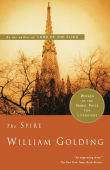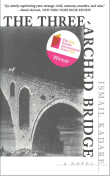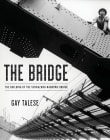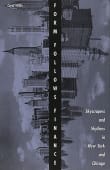The Power Broker
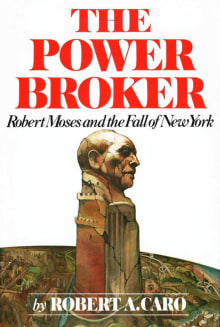
Book description
The Power Broker by Robert A. Caro is 'simply one of the best non-fiction books in English of the last forty years' (Dominic Sandbrook, Sunday Times): a riveting and timeless account of power, politics and the city of New York by 'the greatest political biographer of our times' (Sunday Times);…
Why read it?
12 authors picked The Power Broker as one of their favorite books. Why do they recommend it?

Every biographer must do battle with Robert Caro’s Pulitzer Prize-winning book, a monumental account of urban planner Robert Moses, whose God-like power redesigning postwar New York City effectively remade the capital of the twentieth century. Over the course of 1,336 pages, Caro details Moses’s world-making vision while also acknowledging problematic issues, such as Moses’s reported use of racial slurs and his remapping of roads and overpasses to exclude poorer communities.
Today, half a century since its first publication, The Power Broker remains one of the greatest English-language biographies. It's also a landmark in showing how world-historical change can begin with…
From Karen's list on creatives who transformed American history.

If I hadn’t read this book, I’d never believe a man like Robert Moses could have ever existed. For all his pros and cons, I liked him. I’m including this book because Caro includes a chapter on Moses and his involvement with both New York’s World’s Fairs and it offers the history behind the fairs. I felt this biography was a little on the ‘con’ side, but I liked Caro’s thoroughness and felt I had a good feel for the man for having read the book.
From Ruth's list on the 1964-1965 New York World’s Fair.

Caro is very good at explaining how political power works and how it shapes the built environment both for the state and the city. And although it’s focused on New York, it applies to any city and state. It helps understand why things look the way they do and how they got built.
From Roberta's list on authentic urbanism.
If you love The Power Broker...

Pulitzer Prize winner and arguably the best nonfiction work of the last 75 years. I read this 1,000+ page book twice....twenty years apart. Best exposition on how things, big things, got done by a man who never ran for office nor invested his own money.
The master builder who built more roads, beaches, parks, pools, and projects than all politicians in America combined. A study on gaining and maintaining absolute power in 20th-century America without using money or votes. I believe a reading of this work is essential to an understanding of urban politics.
From Edward's list on quintessential American History/Americana.

After I saw the film, Turn Every Page, which featured the relationship between editor Robert Gottlieb, and the book’s author, Robert Cairo, I decided I had to read this very famous book, and one that I should have read years ago.
It’s massive and somewhat daunting, but once I started, I couldn’t put it down. I write (and used to teach) about environmental politics. This book, which focuses on the career of Robert Moses, can also be viewed as an environmental history of New York City’s built environment: the parks, the highways, the housing developments, and even the playgrounds.…

Do you remember watching the news during the pandemic, when you could see everybody’s bookcases for the first time?
There’s a reason that everyone kept noticing this book over and over and again. First, it’s really long, which means it’s thick and the spine is very recognizable. More importantly, most people read it because of what Caro has to say about the nature of political power.
It’s a biography of Robert Moses, who held multiple state and local positions that allowed him to build most of the infrastructure in and around New York City during the mid-twentieth century: highways, bridges,…
From Jonathan's list on the history of New York City.
If you love Robert A. Caro...

A gnawing hunger for the truth animates this towering author’s work on Robert Moses, New York City’s longtime “master builder” who reshaped and indisputably wrecked large chunks of thriving Gotham over the first half of the twentieth century. This book was staggeringly influential for me as a young urbanist and author coming to grips with the forces that mold the urban landscape. Caro’s intrepid, old-school reporting—a model of investigative journalism, the likes of which we could sorely use more of today—showed how one dogged writer could blow open the portals of power, hold the mighty to account, and reframe how…
From Jeff's list on what happens when cities fall apart.

Arguably, no single person has shaped the built environment of New York City as much as Robert Moses. To some, he was an evil dictator imposing his will on the urban fabric; while to others, he was the man who got things done. In his four-decade career, Moses oversaw the buildings of beaches, parks, highways, bridges, tunnels, public housing, slum clearance projects, and World Fairs. Caro’s work is a detailed chronicle of Moses’ life and projects. Five decades later, one can quibble with Caro’s conclusions, but it remains a jaw-dropping tome about how Moses reshaped New York, for good and…
From Jason's list on the New York City skyline.

The Power Broker is thought of as one of the best biographies of all time, having won the Pulitzer in 1974. Author Robert Caro traces the steps city planner Robert Moses took in implementing his vision of New York City, oftentimes at the detriment of the communities he served. It continues to be a lesson in what not to do when designing for the future.
From Lori's list on the future of design and sustainable living.
If you love The Power Broker...

Before embarking on the Bolshoi as my historical fiction playground, I spent a summer writing a fairy tale about Coney Island - the 19th century Luna Park turned into a 20th-century honkey-tonk ghetto, courtesy of a totalitarian parks department commissioner. Robert Caro’s biography of Robert Moses is the definitive account of the man who made New York City modern, but it also cleaves to urban gothic. The Power Broker could be subtitled Frankenstein’s metropolis. It’s about what happens when we build what we can, and not what we should.
From Elizabeth's list on construction projects, literal, and metaphysical.
Want books like The Power Broker?
Our community of 12,000+ authors has personally recommended 100 books like The Power Broker.


